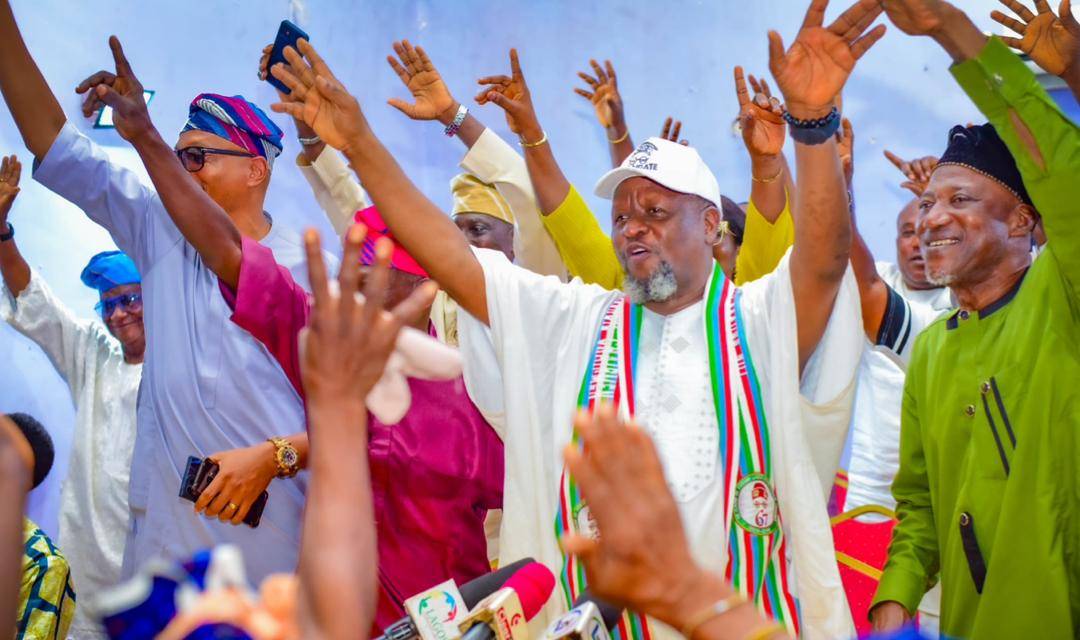By Femi Falana
Electoral law and technology The over bearing influence of the judiciary in the resolution of electoral disputes has continued to expose the judiciary to ridicule and question the legitimacy of the democratic process. A situation whereby candidates are no longer elected by the electorate but by courts and tribunals on technical grounds is a judicial subversion of democracy.
The dangerous trend has to stop. All stakeholders should insist on the immediate adoption of a transparent electoral system that is devoid of manipulations by compromised electoral bodies and corrupt politicians. It is pertinent to review some of the decisions of the electoral tribunals and courts with a view to suggesting ways of reducing electoral disputes to the barest minimum.
It is worthy to note that the use of BVAS machines eliminated the inflation of votes during the 2023 general elections. Hence, many politicians lost their elections. In particular, many sitting senators lost their seats while some governors failed to win senatorial elections. In the celebrated case of Oyetola v INEC, the Supreme Court addressed the issues surrounding the use of BVAS machines for accreditation, electronic transmission of results from BVAS machines and voters register under the Electoral Act.
Upon a review of the provisions of sections 47(1) (2) and 51(2) of the Electoral Act 2022, Regulations 14, 16, 19(b) (iv), (e) (-) and 48(a) of the INEC Regulations and Guidelines for the conduct of 2022 the apex court curiously held that the production of Bimodal Verification System Machines and register of voters are required to prove non accreditation of voters or over voting in the trial of election petitions. It was further held and that the law does not require a presiding officer of an election in a polling unit to transmit the particulars or number of accredited voters recorded by the BVAS to the INEC data base. In the case of Atiku Abubakar v Bola Tinubu the Supreme place heavy reliance of its decision in the case of Oyetola v INEC.
With respect, the position of the Supreme Court cannot be justified under the Electoral Act 2022. Nowhere is it stated in the law that petitioners shall engage in the cumbersome and laborious task of producing BVAS machines before election petition tribunals. Therefore, the report downloaded from BVAS machines by INEC is sufficient to prove voter accreditation. The finding of the apex court that the transmission of election results from polling units is at the discretion of INEC is at variance with section 66 of the Electoral Act and the Guidelines issued by INEC.
Apart from the Guidelines, the principal officers of INEC undertook to transmit the results of the elections. It is submitted that INEC was legally bound to transmit the results under the doctrine of promissory estoppel. It is interesting to note that INEC did not deny its responsibility to transmit the results but that the failure to transmit the results was based on technical glitch. Instead of saying that transmission of results was optional the Presidential Election Petition Tribunal and Supreme Court ought to have interrogated the reason adduced by INEC for not transmitting the results.
But in view of the authoritative pronouncements of the Supreme Court on voter accreditation and transmission of election results, we are compelled to call on the national assembly to amend the Electoral Act to compel the presiding officer in every polling unit to transmit the particulars or number of accredited voters recorded by the BVAS machines to the INEC database. Furthermore, in proving lack of accreditation of voters or over voting it should be sufficient to produce the report of the Bimodal Verification System Machines and register of voters.
Holding elections on the same day
The 2023 general elections gulped N350 billion. In order to reduce the enormous costs of holding two elections, it is suggested that the Electoral Act be amended to empower INEC to appoint a single day for conducting Presidential, Gubernatorial, National and State Assembly elections, at least six months before the expiration of the term of the current holders of the offices. During the six months interval, all election petitions and appeals arising therefrom should be heard and determined.
DETERMINATION OF PRE-ELECTION CASES BEFORE ELECTIONS
It is settled law that a member of a political party lacks the locus standi to question the nomination of the candidate of another political party. In Peoples’ Democratic Party v All Progressives Congress the Supreme Court held that “Section 285(14)(c) of the constitution only allows a political party to challenge the decisions and activities of INEC disqualifying its own candidate from participating in an election.” The right to challenge candidates who are not qualified to contest elections should not be made the internal affairs of political parties. Concerned citizens should be vested with the locus standi to challenge the competence or qualification of candidates, as was the case under section 34 of the Electoral Act 2010.
It is not uncommon for pre-election cases to be determined after the conduct of election and declaration of winners. Thereafter, some courts turn round to annul the results of elections on the ground that the winners were not qualified to have contested the elections. It is a mockery of democracy for courts to disqualify candidates who might have contested and won elections. Therefore, all pre-election cases should be determined and concluded before the conduct of elections.
Determination of election petitions before inauguration of new governments
It is submitted that section 285(6) of the Constitution of Nigeria which provides for 8 or 10 months for resolution of electoral disputes will no longer be applicable once the electoral process is fully technologized. In other words, time will be abridged once INEC is compelled to use BVAS machines for voter accreditation and transmission of election results from each polling unit to its central server.
It is therefore suggested that the Electoral Act be amended to provide for filing of election petitions within 14 days after elections and determined by election petition tribunals within 30 days thereafter. Appeals arising therefrom should be filed within 14 days and determined within 30 days. Appeals arising from governorship election petitions should terminate at the Court of Appeal as was the case before 2011. Furthermore, the proposed amendments of the Constitution and the Electoral Act should make it mandatory for the courts to conclude all election petitions before the inauguration of newly elected governments. In 1979 and 1999, all election petitions were concluded before the inauguration of the President and other elected officials.
To be concluded…
•Being the paper presented by Femi Falana SAN at the Retreat of the Joint Committee on Electoral Matters supported by Policy & Legal Advocacy Centre held at Lagos.














